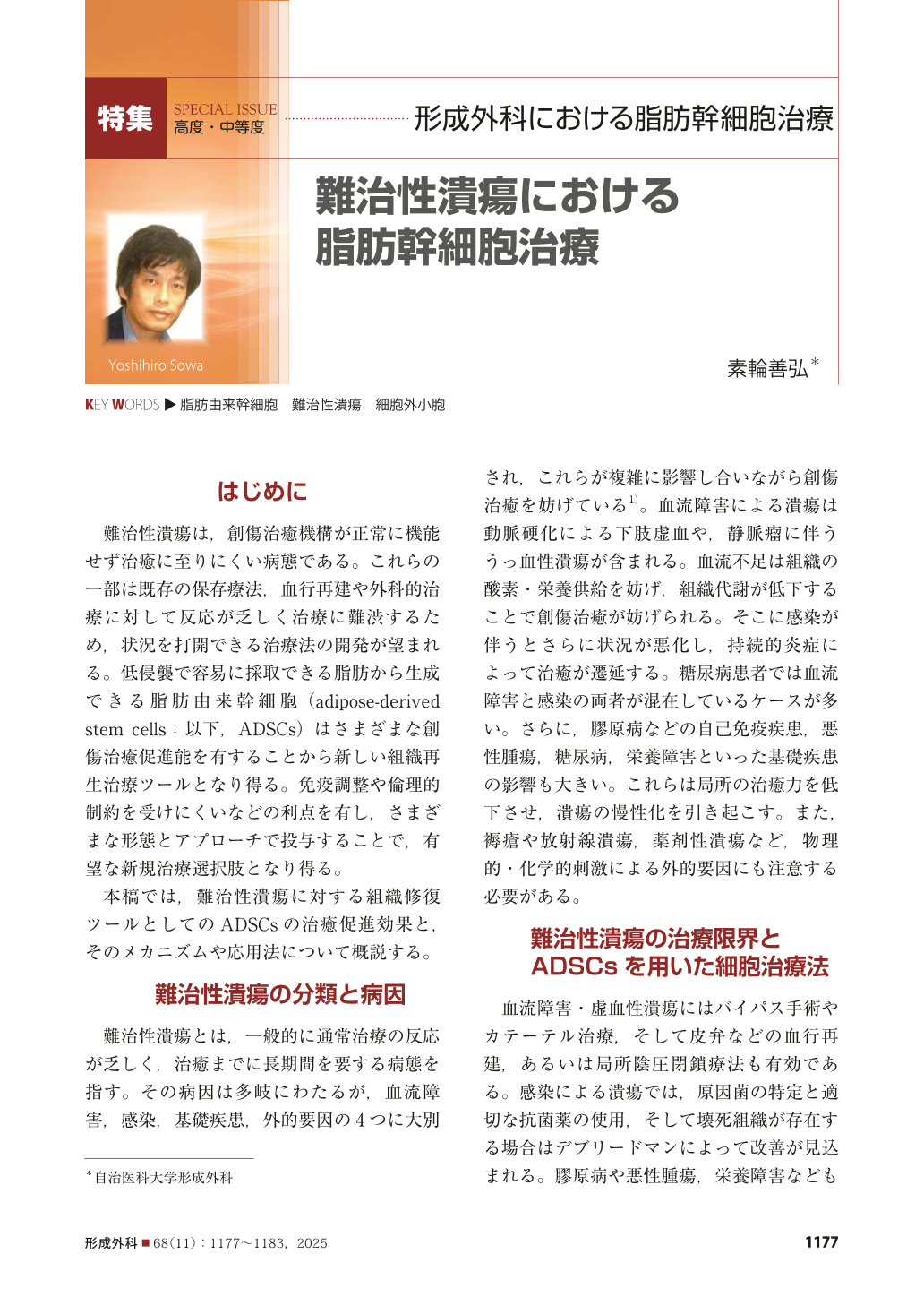Japanese
English
- 有料閲覧
- Abstract 文献概要
- 1ページ目 Look Inside
はじめに
難治性潰瘍は,創傷治癒機構が正常に機能せず治癒に至りにくい病態である。これらの一部は既存の保存療法,血行再建や外科的治療に対して反応が乏しく治療に難渋するため,状況を打開できる治療法の開発が望まれる。低侵襲で容易に採取できる脂肪から生成できる脂肪由来幹細胞(adipose-derived stem cells:以下,ADSCs)はさまざまな創傷治癒促進能を有することから新しい組織再生治療ツールとなり得る。免疫調整や倫理的制約を受けにくいなどの利点を有し,さまざまな形態とアプローチで投与することで,有望な新規治療選択肢となり得る。
本稿では,難治性潰瘍に対する組織修復ツールとしてのADSCsの治癒促進効果と,そのメカニズムや応用法について概説する。
Refractory ulcers heal not at all because their wound-healing mechanism does not function properly. Some patients with a refractory ulcer do not respond well to the existing conservative, revascularization, and surgical treatments. Adipose-derived stem cells (ADSCs) promote wound healing, and they can be isolated from fat tissue that is easily harvested in a minimally invasive manner; ADSCs may thus provide a new tool for tissue regeneration therapy. ADSCs also have the advantages of contributing to immunomodulation and the absence of ethical restrictions regarding their use. They can also be administered in a variety of forms and approaches, making them a promising new therapeutic option. This paper describes the healing-promoting effect of ADSCs as a tissue repair tool for refractory ulcers as well as the underlying mechanisms and the various applications of ADSCs.

Copyright© 2025 KOKUSEIDO CO., LTD. All Rights Reserved.


